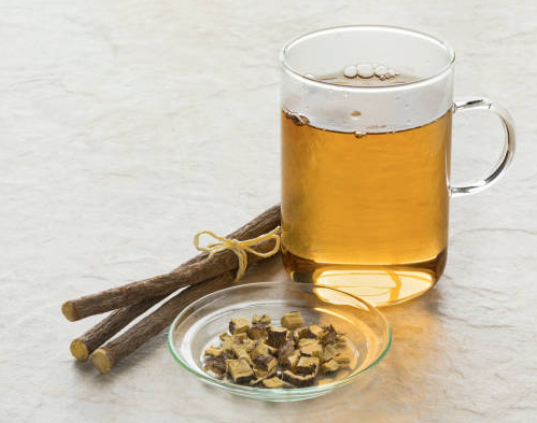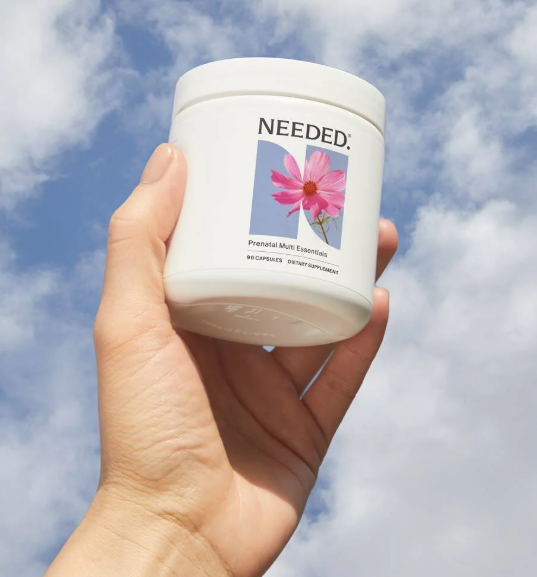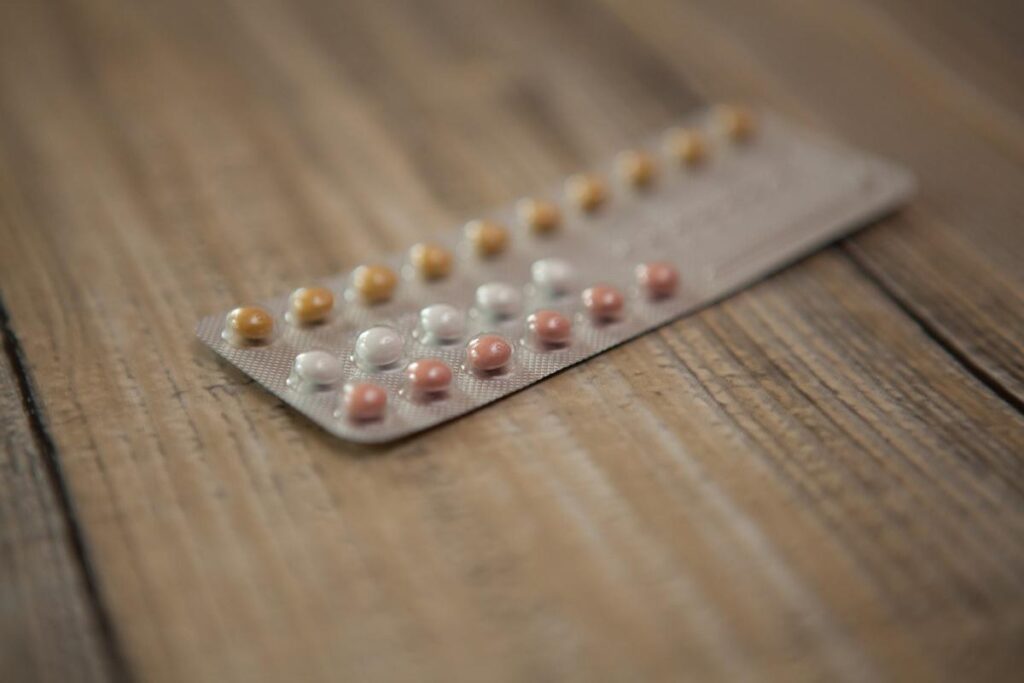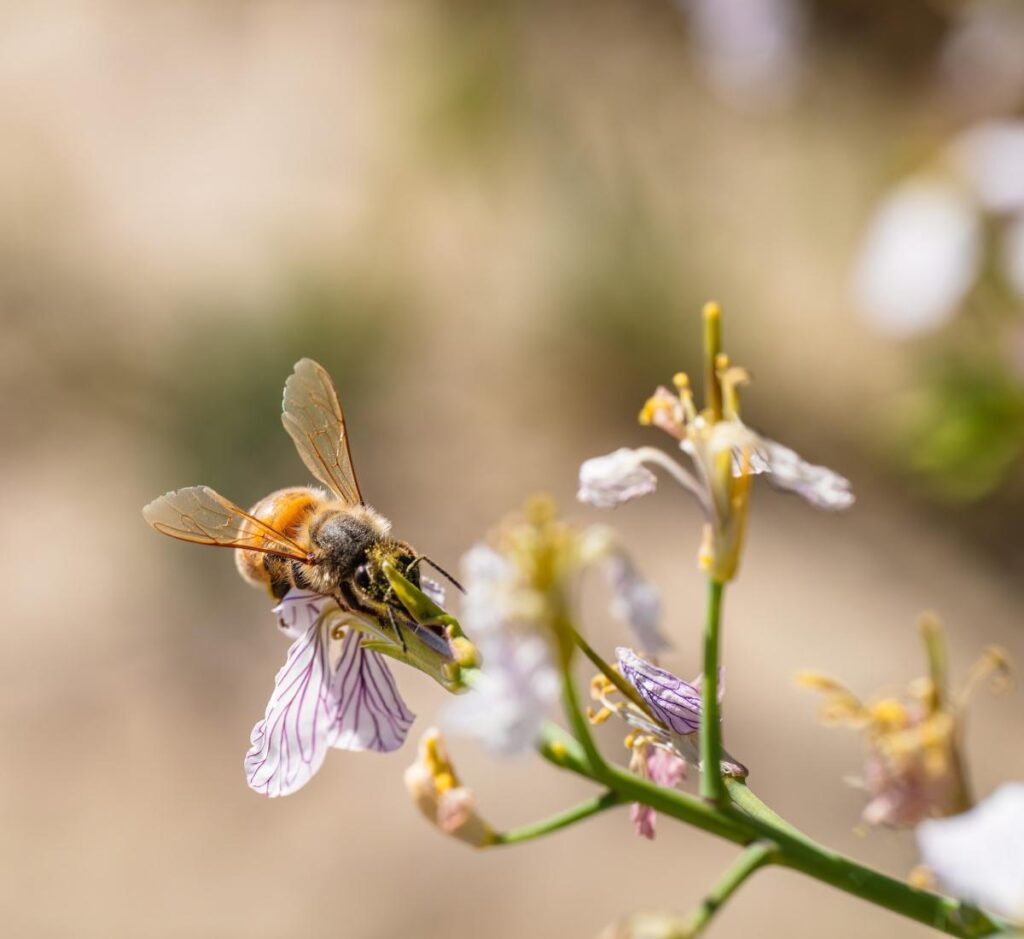at a glance
Licorice Root For PCOS: What are the benefits, risks, and options for this natural remedy?
Table of Contents
- 01 - What is Licorice Root?
- 02 - How licorice has been used in Traditional Chinese Medicine(TCM)
- 03 - What hormones in PCOS can licorice help?
- 04 - Benefits of Licorice Root for PCOS
- 05 - Decrease Androgen Excess
- 06 - Licorice Improves Estrogen and Progesterone Levels
- 07 - Licorice Lowers Inflammation in PCOS
- 08 - Licorice Improves Blood Sugar Levels Which May Aid in Weight Loss Efforts
- 09 -Licorice for the Treatment of Polycystic Ovarian Syndrome
- 10 - Side Effects of Licorice Root
- 11- Nutrient and Drug Interactions
- 12- Who should consider taking licorice?
- 13- Who should not take licorice root?
- 14 - DISCLAIMER
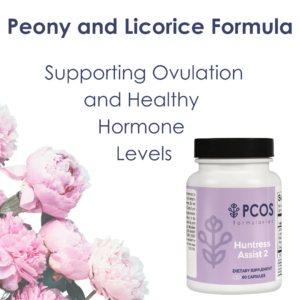
What is Licorice Root?
Licorice is a perennial plant (that just mean a plant that can liver longer than two years) that is often found in Asia and the Mediterranean areas. It has long been used in traditional medicine for a host of issues. As a medicinal herb it should be approached with caution and thorough assessment to make sure it is a good option for treating your PCOS.
Licorice root is commonly used as a flavoring agent in candy, tea, and other products. It’s use in PCOS is related to a compound found in licorice root: glycyrrhizin.
Some studies have suggested that licorice may have anti-androgenic properties, meaning it can reduce the levels of male hormones, such as testosterone, in the body. Since PCOS is associated with higher levels of androgens, licorice has been investigated as a potential treatment for the condition.
How licorice has been used in Traditional Chinese Medicine(TCM)
- Harmonizing Formulas: Licorice is often included in TCM formulas to harmonize and balance the effects of other herbs. It is believed to enhance the therapeutic actions of other herbs, reduce their potential side effects, and promote the overall balance of the formula. It is also used as a:
- Spleen Qi Tonic: Used to enhance digestive function, increase energy levels, and support the overall vitality of the body.
- Yin and Blood Tonic: Licorice is believed to nourish Yin and Blood, benefiting conditions associated with Yin deficiency, such as dryness, hot flashes, night sweats, and irritability. As such it’s commonly used during times of great hormonal fluctuations like peri-menopause.
- Anti-inflammatory and Antispasmodic Effects: It is believed to have a soothing effect on the digestive system and may help relieve symptoms of gastritis, stomach ulcers, and other inflammatory conditions. Licorice is also used to relieve spasms in the gastrointestinal tract.
- Respiratory Conditions: Licorice is commonly used in TCM formulas for respiratory conditions such as coughs, bronchitis, and sore throat. It is believed to have expectorant properties, helping to clear phlegm and soothe the respiratory tract.
- Fertility Supporting: Licorice root has been seen to promote fertility in individuals who have suffered from difficulty conceiving and is often used with peony (another herb found commonly used in TCM).

What hormones in PCOS can licorice help?
- High levels of LH compared to FSH (Luteinizing Hormone compared to Follicle Stimulating Hormone)
- Elevated androgens (Testosterone, Free Testosterone, DHEA-S, DHT and others)
- Low or High levels of estrogen
- Low levels of progesterone
- High levels of insulin
- Higher than normal levels of leptin (satiety hormone)
There have been multiple studies showing the effect of licorice root or it’s active compound glycyrrhizin showing positive effects on each of these hormonal abnormalities listed above.
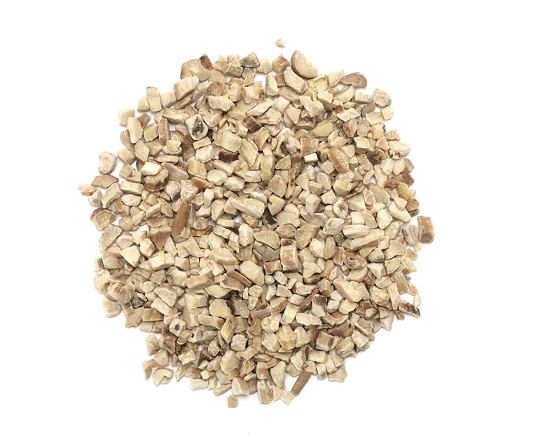
Benefits of Licorice Root for PCOS
When considering any type of treatment for women with PCOS it’s beneficial to approach with multiple goals. I like to consider the following questions with patients:
- How can we improve symptoms and address current hormone imbalances and metabolic insufficiencies?
- How can long-term, underlying, and root-cause strategies support hormonal and metabolic processes in the future so the body can correct abnormalities at the start of the process?
To sum that up I am looking for quick wins and symptom reduction while building strategies and behavior changes that can calm symptoms down in the future.
When I approach treatment options I always keep this in mind and licorice root has a unique ability to help support common symptoms in the present while also supporting root cause mechanisms to decrease hormone abnormalities in the future. Let’s dive into some of the particulars.
Decrease Androgen Excess
Polycystic ovary syndrome is almost synonymous with saying “I have high male hormones” or androgens. Typically even if the hormone levels look ‘normal’ on labwork the evidence of hyperandrogenism is obvious from physical symptoms like hair loss and hirsutism.
The two major sources of androgen production in our bodies are in the ovary and in the adrenal glands.
As I approach interventions with clients to help improve androgens now and later on I look for quick wins and licorice is one of a few natural herbs or plants that has an immediate action on testosterone.
The mechanism by which licorice or its active compound glycyrrhizin may decrease androgens is not fully understood, and more research is needed to establish the exact pathways involved. However, there are a few proposed mechanisms:
- Inhibition of 11-beta-hydroxysteroid dehydrogenase (11-beta-HSD). Licorice contains compounds that inhibit the activity of the enzyme noted above – I don’t expect you to know what that enzyme does. It’s active in the body converting active cortisol into an inactive form: cortisone. By slowing this enzyme down we can decrease the total output of androgens from the adrenal gland.
- Blockade of androgen receptors: Licorice may have anti-androgenic effects by directly blocking androgen receptors. This means that licorice can compete with androgens (such as testosterone) for binding to these receptors, potentially reducing their activity and the effects of androgens on target tissues. Target tissues are places like the hair follicle it’s either turning on to make darker, more course hair. It can also be the sebaceous gland in the skin responsible for promoting oil and acne, or the hair follicle on the scalp leading to baldness. If licorice can stop testosterone from binding to those receptors symptoms can IMPROVE.
- Inhibition of 17-beta-hydroxysteroid dehydrogenase (17-beta-HSD): This enzyme is involved in the conversion of androstenedione (a weak androgen) to testosterone(more active androgen). By inhibiting this enzyme, licorice may reduce the conversion of androstenedione to testosterone, leading to lower androgen levels.
We need further studies to continue to learn how all of this works, HOWEVER, this type of research isn’t the most common to grab the attention of the pharmaceutical industry or others – so finding really high-powered studies with large enough populations and good study design is hard.
I’m still looking for that wealthy woman who wants to help me fund all the nutrition research to help PCOS – a condition that affects up to 1 in 6 women! If that’s you, let’s connect. If that isn’t, then you may need to take my word for what I have seen help hundreds of patients I’ve worked with, and licorice is one of those treatments worth trying.

Licorice Improves Estrogen and Progesterone Levels
As testosterone production at the ovary decreases it frees up the ovary and follicles to produce estrogen. Some women with PCOS have insufficient estrogen levels for the pituitary gland to make hormones stimulating ovulation.
Licorice root has estrogen-like qualities that can act on estrogen receptor sites to help improve estrogen balance. It is often used in the period of falling estrogen in peri-menopause to help decrease symptoms like night sweats and hot flashes.
As testosterone levels decrease and estrogen levels normalize ovulation can occur more readily. This can improve both the frequency of progesterone production and the amount of progesterone the ovary can produce post ovulation.
Licorice Lowers Inflammation in PCOS
Low-grade systemic inflammation is something we have recently seen women experience more effects of if they have PCOS.
Flavonoids:
Licorice root contains various flavonoids, including liquiritin and isoliquiritin, which have been shown to have anti-inflammatory effects. These flavonoids can inhibit the production of pro-inflammatory cytokines and reduce the activity of inflammatory mediators, thus helping to lower inflammation.
Antioxidant activity:
Licorice root possesses antioxidant properties, which can help combat oxidative stress and inflammation. The antioxidants present in licorice, such as glabridin and glycyrrhizic acid, can scavenge free radicals and reduce the damage caused by oxidative stress. By reducing oxidative stress, licorice can help lower inflammation.
Modulation of the immune response:
Licorice root has been found to modulate the immune response by regulating the production of immune cells and cytokines. It can help regulate the balance between pro-inflammatory and anti-inflammatory cytokines, leading to a dampened inflammatory response.

Licorice Improves Blood Sugar Levels Which May Aid in Weight Loss Efforts
Most women with polycystic ovary syndrome have at some time or another struggled to lose weight or maintain a “healthy weight”. It’s also very common in PCOS treatment for a physician to recommend weight loss to you.
Insulin resistance is at the core of PCOS intervention strategies. Can taking licorice root help with the metabolic abnormalities, blood sugar irregularities, and appetite issues people with PCOS endure?
Can licorice help with appetite suppression?
Many people with polycystic ovary syndrome struggle with binge eating and describe extreme carbohydrate and sweets cravings. I’m raising my hand as one who has been in those camps before. In this age of hyper-processed foods that scientists are literally designing for us to have addictive-like tendencies, we may need all the help we can get to manage our appetite and cravings.
There are a number of nutrition and pharmacological strategies to combat this tendency. Hello, we are living in the age of Ozempic, and I’m still seeing doctors prescribing phentermine to patients to help decrease appetite. Can licorice be a logical and more natural solution for this too?
The answer is MAYBE! Many of my patients have reported fewer sugar cravings and greater feelings of being satisfied after meals when taking licorice. This is great news.
Licorice contains compounds that may influence appetite and satiety, such as glycyrrhizin, which has been suggested to have potential effects on regulating hunger hormones. Some studies conducted in animal models have shown that licorice extracts or compounds derived from licorice can reduce food intake and appetite in rodents. I’d love to see if we can get research on this in humans as well.
Can Licorice help with insulin sensitivity and weight loss?
Insulin Sensitivity(something we want more of when we struggle with insulin resistance): Some studies conducted in animal models and in vitro have shown that licorice and its compounds, particularly glycyrrhizin, may improve insulin sensitivity by helping cells take in more glucose from the bloodstream and use it more efficiently.
A few small-scale human studies have examined the effects of licorice on blood sugar levels. Some studies have reported modest improvements in glycemic control parameters, such as fasting blood glucose and HbA1c levels, in individuals with conditions like type 2 diabetes or impaired glucose tolerance.
Glycyrrhizin found in licorice root has been suggested to affect metabolism and energy balance. Some studies conducted in animals have shown the potential effects of licorice on body weight, fat accumulation, and lipid metabolism. However, the translation of these findings to humans is complex, and individual responses may vary.
In a study of PCOS-induced rats licorice extract was shown to improve the weight of rats that were treated with licorice compared with the control groups. I have seen clients who take licorice experience weight loss, however, it is difficult to say it was only the licorice as they are often on myoinositol and making dietary changes as well.
Is licorice combined with other herbal or natural treatments to increase efficacy?
In formulations, you will often find white peony root combined with licorice root. White peony has long been used in Traditional Chinese Medicine(TCM) along with licorice root. White peony works by lowering the production of testosterone and helping promote an enzymatic pathway called aromatize which allows testosterone to be converted into estrogen.
In TCM it is believed that these two roots work synergistically together to achieve therapeutic effects. It is often combined to help initiate ovulation, lower hair loss, slow down or eliminate male-patterned hair growth (hirsutism) and acne.
We have chosen to combine licorice and peony together in our PCOS Formularies product Huntress Assist 2. This is a product we have created to help decrease the production of androgens and stimulate ovulation, while improving progesterone levels.
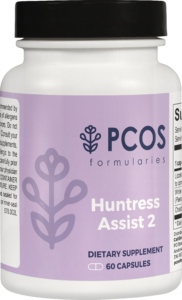
Licorice for the Treatment of Polycystic Ovarian Syndrome
As a dietitian, I love a “food first” approach to anything. I love to purchase licorice root to use in loose-leaf tea from an organic tea and herb source.
Licorice Root in PCOS Tea Blends
Adding some licorice root to a loose-leaf tea blend can be a great way to daily or weekly support hormone balance. Add 1-2 tsp of licorice root to a cup of boiling water and steep the tea for 5 to 10 minutes.
Whenever brewing medicinal teas cover the tea cup or pot while steeping to trap essential oils from evaporating away as these have therapeutic effects as well.
Licorice Root in Powders
Obtaining powdered licorice root can be a great option for adding to smoothies or into a pudding, custard, or oatmeal. It can have a sweet flavor.
If you do not like the flavor of black licorice candies, this may not be your most favorite route of licorice delivery. If that is you, consider the next option.
Licorice Root in Supplements
Licorice extract is often made be adding alcohol to licorice root for a period of time. You can either take in a tincture/liquid form or you can take a dried version of that in capsule form.
Since it isn’t my most favorite flavor in the world I choose to take it in supplement form. Be sure to check out the PCOS Formularies product Huntress Assist 2 if you want to try this out.
Side Effects of Licorice Root

While licorice root is generally considered safe when used in moderation and for short durations, excessive or prolonged consumption can lead to potential side effects. Here are some common side effects associated with taking licorice root:
Elevated Blood Pressure:
Licorice root contains compounds that can increase blood pressure in susceptible individuals. This effect is primarily due to the presence of glycyrrhizin, which can cause sodium and water retention and decrease potassium levels, leading to an increase in blood pressure. Individuals with high blood pressure or cardiovascular conditions should exercise caution and consult with a healthcare professional before using licorice root.
Fluid Retention and Edema:
Excessive consumption of licorice root can lead to fluid retention, causing swelling or edema in the legs, ankles, or other parts of the body. This is also associated with the ability of glycyrrhizin to affect sodium and water balance in the body.
Potassium Imbalance:
Licorice root can cause a decrease in potassium levels (hypokalemia) due to its impact on the regulation of electrolytes. Low potassium levels can have various effects on the body, including muscle weakness, irregular heartbeat, and fatigue.
Allergic Reactions:
Some individuals may be allergic to licorice root or its components, which can result in allergic reactions such as rash, itching, swelling, or difficulty breathing. If you experience any allergic symptoms after consuming licorice root, discontinue use and seek medical attention.
Nutrient and Drug Interactions
Licorice root, specifically the compound glycyrrhizin found in it, can interact with various drugs and nutrients. Here are some common interactions to be aware of:
1. Drug Interactions:
– Digoxin: Licorice can decrease the effectiveness of digoxin, a medication used to treat heart conditions. It can reduce the excretion of digoxin from the body, leading to increased levels of the drug and potential toxicity. If you’re taking digoxin, it’s important to avoid excessive licorice consumption.
– Corticosteroids: Licorice can enhance the effects of corticosteroids, such as prednisone or hydrocortisone, increasing the risk of corticosteroid side effects like fluid retention, high blood pressure, and potassium loss.
– Diuretics: Licorice can counteract the effects of diuretic medications by reducing potassium levels, which may be especially concerning for individuals with high blood pressure or heart problems.
– Blood thinners: Licorice may have anticoagulant properties and could potentially interact with blood-thinning medications like warfarin, increasing the risk of bleeding. It’s important to monitor your blood clotting parameters if you consume licorice while taking these medications.
2. Nutrient Interactions:
– Potassium: Licorice can cause a decrease in potassium levels in the body, which could be problematic for individuals who are already taking medications that deplete potassium or have certain health conditions like kidney problems. Low potassium levels can lead to muscle weakness, irregular heartbeat, and other complications.
– Sodium: Licorice may increase sodium retention in the body, which can be problematic for individuals with conditions like high blood pressure or heart disease who need to limit their sodium intake.
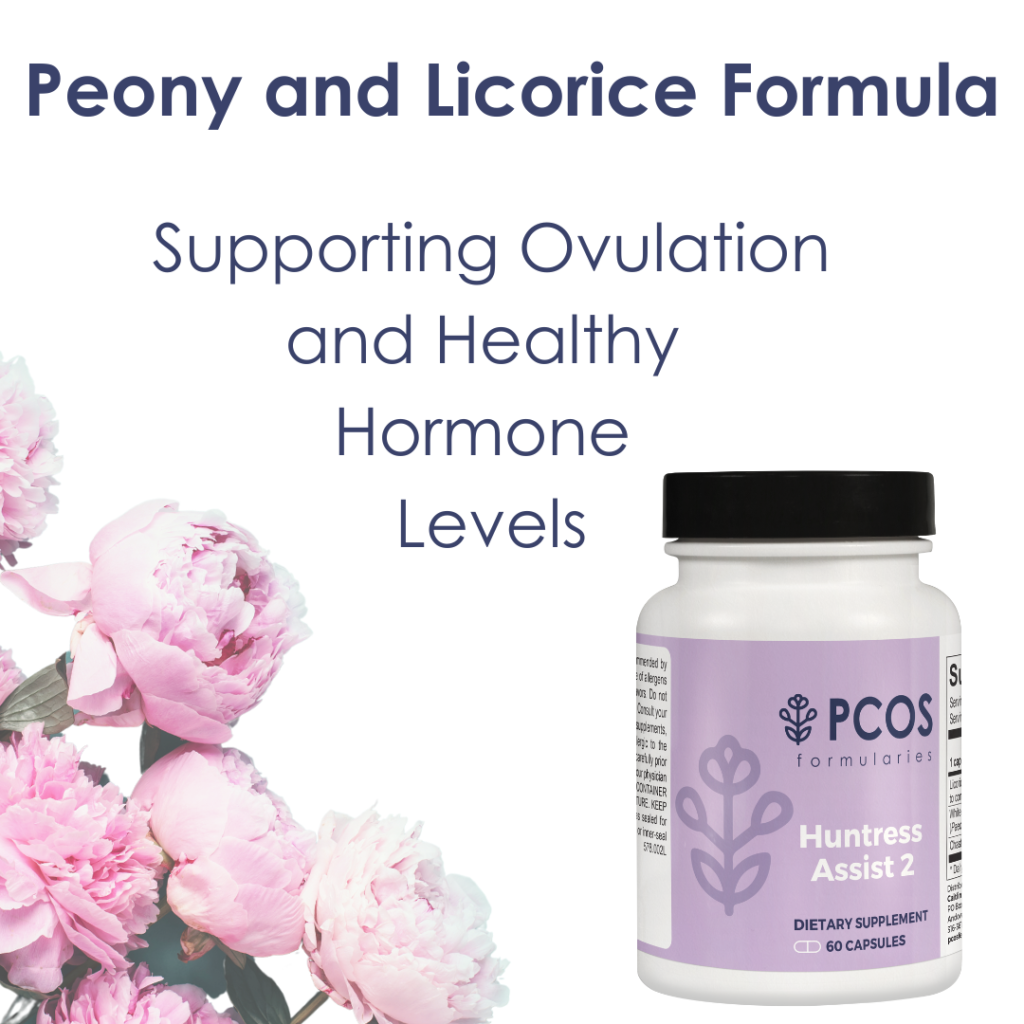
Who should consider taking licorice?
Licorice (especially when combined with peony) would be a great supplement to trial or an ingredient to add to any teas you are already consuming to help manage PCOS. If you have high androgens or suffer from any of the following symptoms it is worth trying:
- acne
- hair loss
- hirsutism
- anovulation
- low levels of estrogen
Taking licorice for 2-3 months will help to provide enough exposure to see if it is improving symptoms. It is important to remember that all supplements and herbs used for therapeutic effects, will always work best when paired with diet and lifestyle interventions.
Many times doctors are very quick to make recommendations around weight loss and ovulation induction medications and do not have the background to understand plant-derived anti-androgens like licorice root. Those with elevated testosterone levels may be best positioned to benefit from use.
For someone with infertility that also has high insulin levels, and metabolic syndrome and needs help regulating ovulation – licorice is a natural compound worth trialing before moving on to more powerful pharmaceuticals.
Those struggling with adrenal fatigue can benefit from licorice as it can modulate the effects and production of cortisol and help with the body’s overall stress response.
Some studies have shown that topical treatment with licorice gel has improved laser hair treatment efficacy and improved acne.
Who should not take licorice root?
Do not take licorice in pregnancy.
While I will recommend licorice root to be used in clients with conception goals, we immediately stop taking licorice root once pregnancy is confirmed.
While maternal licorice consumption is not something that has been highly studied we do know that licorice root has the potential to reduce serum testosterone levels we want to avoid this in early pregnancy when gonadal development is occurring in baby.
Combined with the increased risk of high blood pressure in a PCOS pregnancy, we also do not want to take a plant in high quantities that could increase blood pressure.
Do not take licorice while breastfeeding.
I also typically recommend avoiding taking licorice early on in breastfeeding while breastfeeding and supply is being established. I wouldn’t even consider it if you are someone who struggles with breast milk supply.
If you have regained your period and have a sufficient supply of breastmilk you may be able to safely consume smaller amounts of licorice to reduce elevated androgens. However, I tend to exercise an abundance of caution during pregnancy and post partum when it comes to an herbal remedy or medicine.
Do not take licorice if you have currently or a history of high blood pressure or hypertension.
For reasons listed above in detail, licorice root has the potential to increase blood pressure and is to be avoided if already struggling with hypertension.
Before incorporating licorice or any herbal supplement into your PCOS management plan, it’s recommended to consult a qualified healthcare provider who can assess your individual circumstances, provide guidance on potential interactions, and help you make informed decisions about whether licorice is a suitable option for you. They can provide personalized recommendations based on your health history and current health status.
DISCLAIMER
The advice provided in this article is for informational purposes only. It is not meant to augment and not replace consultation with a licensed health care provider. Consultation with a physician, dietitian, naturopathic doctor or other primary care provider is recommended for anyone suffering from a health problem.

I’M CAITLIN JOHNSON!
You are ready to trust your body again. You are ready to fix your hormones and fall in love with your body. Let me show you the way through comprehensive courses to manage your hormones and boost your fertility with PCOS.
Are you
struggling to get pregnant and you don’t know what step to take next. Join Find Fertility today and discover the process hundreds have used to get pregnant and have their dream baby.

